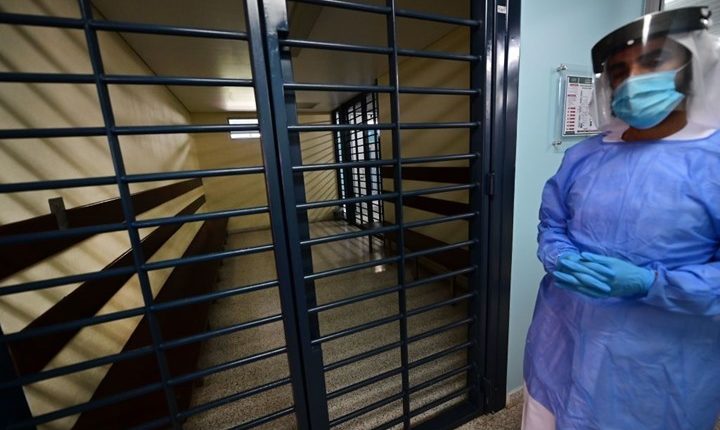The International Campaign for Freedom in the Emirates (ICFUAE) highlighted its refusal to release prisoners of conscience a year after the spread of the Covid-19 pandemic.
The international campaign said that the UAE continued not to abide by the call of the United Nations High Commissioner for Human Rights to address the dismal conditions in detention centres and release prisoners of conscience.
The United Nations has repeatedly called for measures to be taken to protect detained individuals’ health and safety in light of the difficulty of ensuring self-isolation and social distancing.
The UN noted that detention facilities are often overcrowded, unsanitary, and provide little or no health services.
The international campaign highlighted that the UAE prisons are known for their unsanitary conditions and overcrowded facilities, with the widespread denial of adequate medical care.
It indicated that prisoners of conscience live in prisons such as al-Sadr, al-Wathba and al-Razin in small cells with poor ventilation, unsafe drinking water and often insufficient food.
The UAE prison administration has not taken sufficient measures to prevent the spread, such as increasing supplies of soap and hand sanitizer or distributing gloves and masks.
In addition, sick prisoners were receiving neither medical care nor any pain medication.
Human Rights Watch (HRW) published a report in June 2020 detailing unsanitary prison conditions and the systematic mistreatment of detainees since the start of Covid-19.
For example, family members of conscience detainees reported that symptomatic inmates were taken to unknown locations while those in contact with this person were not often tested.
In some cases, inmates who show symptoms are placed in quarantine for 17 days, similar to solitary confinement.
This violates internationally agreed standards of Rule 44 of the United Nations Standard Minimum Rules for the Treatment of Prisoners, which prohibit solitary confinement for more than 15 consecutive days.
In late April 2020, the UAE authorities released more than 4,000 detainees as part of the traditional annual amnesty for Ramadan.
However, none of them were prisoners of conscience. This means that the likes of prominent human rights defender Ahmed Mansour and academic Nasser Bin Ghaith remain in detention amid the ongoing pandemic.
Even more disturbing is that Mansour and Ghaith suffer from health problems and are constantly denied access to health care.
Accordingly, the international campaign again called on the UAE to immediately release prisoners of conscience and to improve health and safety conditions in detention centers.
As Ramadan approaches next month, more prisoners will be released as part of the traditional amnesty.
The international campaign called on the UAE to include human rights defenders and all those imprisoned for their peaceful opposition in this release.



